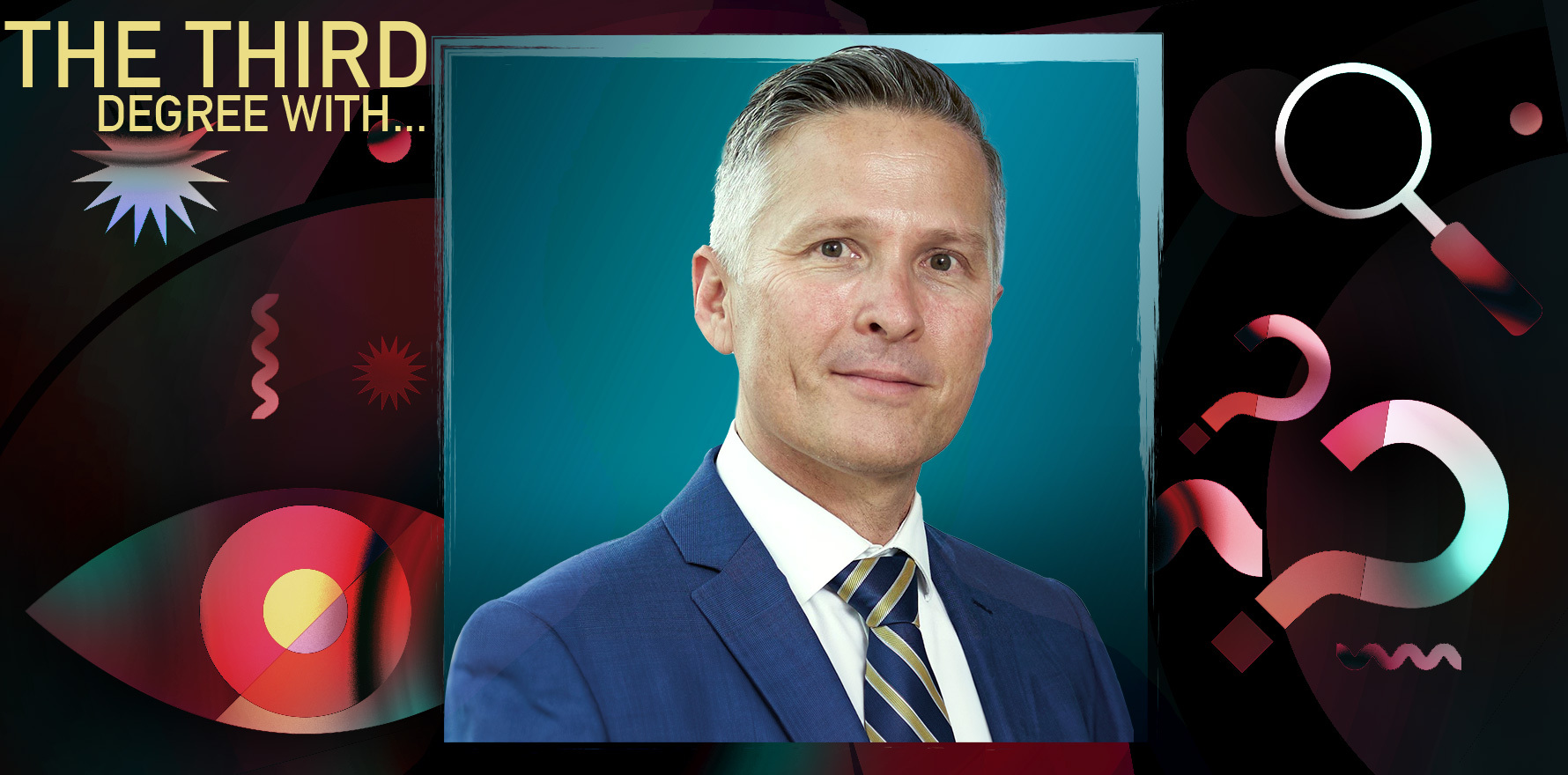Sydney GP Dr Michael Wright has officially taken up the mantle of RACGP president. Here’s what’s next.
The RACGP has a shiny new president in the form of Dr Michael Wright, who was elected by members earlier this year and has now officially stepped into the role.
Dr Wright is starting his presidency with general practice in a state of flux.
On one hand, the college has just filled every training place on the AGPT program for the first time in close to a decade and has just recorded a hefty $20 million profit.
On the other, there are moves from pharmacists and nurses to increase scope of practice and a government that is intent on pushing models of care that have yet to earn broad support across general practice, namely voluntary patient registration and urgent care clinics.
It is his work outside of the practice – namely the medical indemnity and health economist space – that has already earned Dr Wright the respect of the federal health minister Mark Butler.
“In your president, the college has someone who quite literally wrote the book – or the PhD, at least – on how better care for chronic conditions comes when patients identify their regular GP and their regular GP receives financial incentives to provide good, wraparound care,” Mr Butler told delegates at the recent RACGP annual conference.
Dr Wright sat down with The Medical Republic on the last day of the conference, two days into his official term.
TMR: Presidents in the US seem to like to have a list of priorities for the first 100 days of their term – what is on yours?
Dr Wright: I’m very excited.
I took over as president from Dr Nicole Higgins at the AGM two days ago and then yesterday I had a fireside chat with the health minister.
It’s been a pretty massive first couple of days.
There are some long-term priorities, but then … even just during this conference, it’s becoming more clear that general practice is the solution to the health system problems that we have, and that we need more funding into comprehensive, high-quality, long-term care.
That is what we provide in general practice.
I think the fact that the Minister was here at the conference is a sign that he knows we need to support general practice, and that without general practice being the glue that holds the health system together, the system is just going to fall apart.
We want to have a costed proposal to work out how we better fund the MBS, particularly for vulnerable patients – people with chronic and complex conditions or multiple mental health conditions – and the GPs who are looking after them.
One of the things we’ve called for is funding longer consultations within the MBS, because there’s a cost-of-living crisis.
We know that practices are struggling with financial viability, and there just has to be more funding going into the MBS to support the care that patients need.
We really need to focus on workforce.
Last week, the college announced that all the training places for the training program were filled, which is really exciting because it shows that if you fund the college and GPs to do things, it happens.
And now we just need to work on removing a series of barriers that make general practice less attractive and less financially attractive.
It’s a great career, but we need to get that message out and make sure these financial barriers aren’t there.
With the federal election coming up, it’s important that every member of parliament speaks with one of their local GPs to know the value of their local general practitioners and to know the amazing work that we do with our patients.
TMR: The scope of practice review dropped a few weeks ago, and nursing and pharmacy bodies have seen real opportunities for increased scope. We knew this was going to be the likely outcome, so what is the college planning?
Dr Wright: The success of Medicare for the last 40 years has been based around affordable access to GP services.
Australia has the best health system in the world, and a lot of it is based in this access to general practice.
Changing that just doesn’t make any sense.
We’ve looked at models where other providers do bits of what we do, and it’s more expensive and doesn’t work as well.
I think the message coming through in this scope of practice review was – as the minister said when talking about GP-led teams – that we all need to work together.
We need to collaborate.
Setting us up in parallel or in isolation will lead to failure.
TMR: The RACGP launched an advocacy network earlier this year. I know you’ve only been in the job 24 hours, but how is that going?
Dr Wright: It is progressing well, and we’re trying to get GPs in every electorate around the country to be well informed about how GPs and the college are dealing with the current challenges – but more importantly, how we can solve these challenges by providing access to high-quality care.
We know that we’re the most efficient part of the health system.
Investing in general practice saves money downstream, but often that message is lost.
I know we know that in general practice. Every patient that we see who we can avoid going into hospital saves the health system hundreds and thousands of dollars, but often that’s not detected.
TMR: The college recently co-signed a statement opposing urgent care clinics. During his speech yesterday, Minister Butler made it quite clear that MyMedicare was not going anywhere, and neither were urgent care clinics. What’s the plan going forward?
Dr Wright: I thought it was great that the minister talked about GP-led multidisciplinary care teams and acknowledged that general practice is the heart of team-based primary care.
It’s what we do every day, and it’s not rocket science to expand it – we just need to be supported to do it.
We also need to make sure that we don’t set up alternative pathways that fragment care, where patients don’t know what they’re getting, who they’re seeing and if anyone’s communicating with anyone.
I think with the urgent care centres – fundamentally, it’s a great idea to get funding into the community, but it needs to support existing practices.
It needs to communicate with existing practices and not create more challenges for the workforce by taking people from other practices.
Related
TMR: The RACGP had a big win with bringing in 1500 trainees for next year; with the return to profession-led training, education is now a very big part of the college. What has to happen to keep it at the forefront?
Dr Wright: Training is part of the core business of the college, and it’s great to have it back, but [the college is also concerned with] education and training through your whole career.
It’s not just your fellowship or the progress to fellowship, it’s the CPD offering; I think those things all flow together.
We know that there’s no substitute for the senior GP who knows you and your history.
The minister mentioned my PhD about continuity of care, and I think that’s the core of what we do.
We see people over time, and by seeing them over multiple occasions, we understand what their needs and wants are, and we can help them deal with a broad range of things.
TMR: Something that general practice has struggled with is being able to show that data and prove their worth. Hospital-based specialists are often able to whip out data on costing and efficiency because they have the funding to do research. GP researchers have been dwindling in number over the last few decades.
Dr Wright: One of the highlights of the conference was the RACGP Foundation relaunch.
It’s now the Australian General Practice Research Foundation, building on the success of the RACGP Foundation but saying it’s more than the RACGP.
It’s about investing in understanding what general practice does, but more importantly, it is about highlighting the value.
We have struggled with this for a long time because people don’t see the outcomes as easily; with the care that we provide, it might take 20 years to prevent a heart attack.
It takes a lot longer to identify something that hasn’t happened, rather than intervening and having some something removed.
TMR: I sat in on a workshop on supraclinical advocacy yesterday, and people were talking about how sometimes they’ll encourage a patient to try a certain intervention and they’ll ignore it at the time – but 10 years later they might walk in the door having finally given it a go. That’s hard to measure.
Dr Wright: Smoking cessation is like that.
So many times, we give people a brief nudge about smoking and it might take two, five or 10 times, but more and more people come in and they go, ‘I finally stopped’.
But it’s that repeated intervention and that openness, where people can come back if things haven’t worked out, and we go back and try something else.
The annual RACGP conference, GP24, was held in Perth between 21 and 23 November.
This interview was edited for length and clarity.





